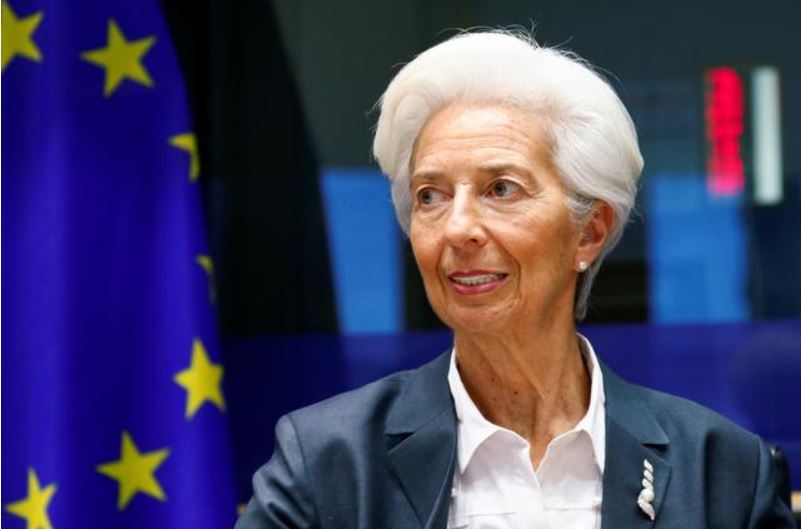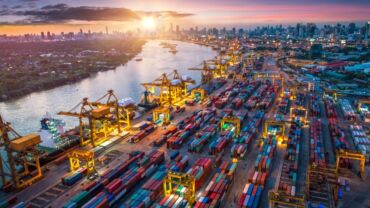In the latest Reuters Newsmaker, we speak to Christine Lagarde, president of the European Central Bank, about the twin challenges of our time: climate change & the pandemic
The European Central Bank’s (ECB) core mission is to maintain the financial stability of the euro relative to other global currencies, particularly the United States dollar. While many factors threaten that stability, the ECB has been remarkably successful at protecting eurozone economies during the COVID-19 pandemic. According to ECB president Christine Lagarde, however, the stabilizing power of the ECB and other central banks heading into 2022 depends to a large extent on how much cooperation world governments can muster to combat the two most pressing challenges of our time: the pandemic and climate change.
“The world is not going to be safe until everyone is safe,” Lagarde said in a Reuters Newsmaker interview this week. “Vaccination is a key” to recovery, she added, but so is a flexible, responsive monetary policy and a high degree of international cooperation.
Stimulus spillover?
Speaking with Reuters business editors Rob Cox and Swaha Pattanaik, Lagarde cautioned that continued market uncertainty, inflationary pressures, and the uncertain ripple effect of the U.S.’s multi-trillion-dollar stimulus efforts are all cause for concern, but she is nevertheless optimistic about the prospects for a robust economic recovery going into 2022, especially now that the U.S. is re-engaging with the world on so many levels.
“It’s still early days, but the ECB staff has already begun figuring out what the spillovers [from the U.S. fiscal stimulus] will be,” she explained. The ECB’s preliminary assessment is that the U.S. stimulus — which Lagarde prefers to call “investment and transformational financing” — will have an overall impact on EU GDP of approximately 0.3%, and will nudge inflation up a mere 0.15%, both of which she called “positive spillovers.”
Nevertheless, Lagarde said she expects some sectors of the economy to bounce back faster than others, and for the creative churn of capitalism to fuel an imminent increase in bankruptcies over the short term. Many industries hit hard by the pandemic — especially transportation, hospitality, and tourism — will obviously take longer to rebound, she noted, as will countries with economies that rely on tourism. On the other hand, human adaptability is proving to be more resilient than many expected prior to the pandemic.
“We have been amazed at the way in which the private sector and households, families, and people have responded to the crisis, and have managed to adjust the ways we work,” Lagarde observed. Working from home, operating in virtual teams, using web-enabled services to communicate — these are all things workers can now do without sacrificing effectiveness or efficiency, she said, adding that these capabilities will continue to transform society in the future.

As for the coming wave of bankruptcies, Lagarde says it’s inevitable, but that banks are in a relatively strong financial position to deal with them. However, a “critically important” component for managing the financial toll of the coming bankruptcy wave will be accurate risk assessments, she noted — ones that distinguish between companies in a “liquidity” crunch and companies with “solvency” issues. Preventing companies with liquidity problems from morphing into solvency cases should be a high priority for every government, she insisted.
Central bankers & climate
While the ECB and other central banks have a great deal of power when it comes to monetary policy, Lagarde was careful to warn that grappling with the biggest global challenge of all — climate change — will require a much broader meeting of international minds. “The key players are not the central bank governors, they are the finance ministers, governments, and policymakers,” she said. “What we central bankers can do is to join forces with finance ministers and governments in order to contribute our share in what should be a common cause for all.”
What might those contributions be?
Lagarde listed a few steps central bankers can take to incorporate climate-change considerations into their work. Among them:
-
-
- account for how climate change affects financial models;
- incorporate climate impacts into calculations of the natural interest rate;
- ask how climate change impacts inflation measurements and other risk factors;
- anticipate the possible use of carbon taxes and other off-set mechanisms;
- study changes in consumer spending and saving patterns due to climate issues;
- measure climate change’s impact on the bank’s overall portfolio;
- stress-test everything with climate change in mind; and
- implement guiding principles that make climate concerns a priority.
-
How successful such efforts might ultimately be depends upon how seriously such measures are undertaken and how much momentum governments can generate for implementing climate-friendly policies on their own soil, Lagarde said, adding that those looking for signs of progress on climate issues will find an abundance of them at this year’s United Nations Climate Change Conference (COP26), to be held in Glasgow in November.
“COP26 is a critically important moment,” Lagarde emphasized, because there is a greater sense of urgency around the world about climate issues now than there was when the original Paris Agreement was signed, and because the United States has re-entered the climate conversation in a big way. More importantly, said Lagarde, the U.S. is actively incorporating climate-change considerations into its stimulus and infrastructure spending, reasserting itself as a leader on the issue. “I wouldn’t be surprised if there were some significant breakthroughs and moves to accelerate the response to climate change threat we face,” Lagarde suggested.
And in many ways, she implied, the global economic recovery depends upon it.







